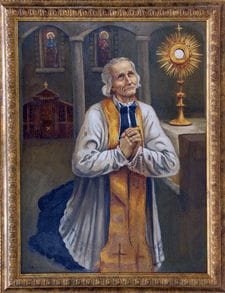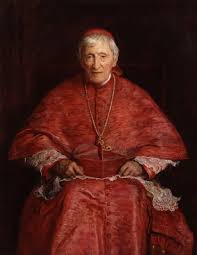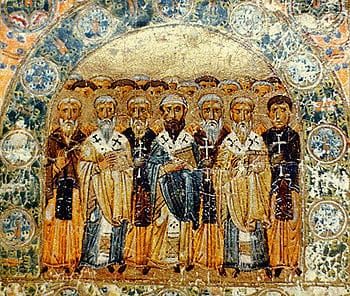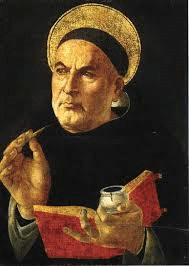There is a sense that the cultural tide is shifting away from widescale acceptance of transgenderism. One gets the feeling that yesterday’s advocates are turning into today’s skeptics. That the ideologues were willing to sacrifice children on the altar of “gender affirmation” certainly sped up the process, but there is another reason why ideological support is waning. For the intellectual elite and their ilk transgenderism was always meant to be a port of entry into a Brave New World and nothing more; an on-ramp to the Transhumanist superhighway. Once the court of public opinion begins voting to convict, the “Transgender Moment” will have outlived its usefulness and they will begin to sever their ties to it, leaving thousands of victims in their wake.
Linking them Up
Transgenderism and transhumanism may only seem to be tangentially linked, but a closer examination shows the transgenderism to be fruit from the transhumanist tree. At the heart of the transgender ideology is a shift in identity. We are not body and soul composites, but minds operating in bodies. The body is viewed as no more than gendered machines that can be modified to suit the sexual intuition of the individual. What it found out rather quickly is that no amount of technological tinkering can alter the machine so that a man might really become a fully-functioning woman and vice versa. “Gender affirming care” became quite the opposite and left its victims in sexual limbo by becoming permanently disfigured, resembling neither sex.
From this perspective it appears to have been a failure. But that was never really the point. The point was to sell an intellectual bill of goods and the culture was found willing to pay the dues. Not only does it show that most people view themselves as ghosts in a machine, but that there is no such thing as a fixed human nature.
This is not mere speculation, but the plan of one of the planners himself. Martine Rothblatt is one of Forbes’ Top 50 richest self-made women . He is so successful that not being a woman isn’t an obstacle to appearing on a list of the most successful women. Rothblatt shows his hand when, in his 2011 book Transgender to Transhumanism, he says:
“I came to realize that choosing one’s gender is merely an important subset of choosing one’s form. By form, I mean that which encloses our beingness … I came to this realization by understanding that 21st century software made it technologically possible to separate our minds from our bodies. This can be accomplished by downloading enough of our neural connection contents and patterns into a sufficiently advanced computer and merging the resultant mindfile with sufficiently advanced software—call it ‘mindware.’…”
If you can choose a body to house your gendered mind, then why must we ultimately choose a body at all? Why couldn’t we choose an avatar that avoids all the messiness of the body like pain, sickness and ultimately death? What if we just linked our minds with some computer or some other hive mind?
Building on this point, Rothblatt connects the dots further by saying:
“In a similar fashion I now see that it is also too constraining for there to be but two legal forms, human and non-human. There can be limitless variation of forms from full fleshed to purely software with bodies and mind being made up of all degrees of electronic circuitry between. To be transhuman one has to be willing to accept that they have a unique personal identity beyond flesh or software and that this unique personal identity cannot be happily expressed as either human or not. It requires a unique transhuman expression.”

If gender is not binary, then, Rothblatt contends, any aspect of personality is also on a spectrum. This leads him to conclude that we should view humanity itself as a spectrum. This is at the heart of the Transhumanist project, expanding the spectrum towards some post-human ideal.
The Connection to Evolution
It also shows a willingness to abandon biology in favor of evolution. What I mean by this is that biology really doesn’t matter when you can grab the evolutionary reins for yourself. This is, according to the popular author Yuval Noah Harrari account in Homo Deus, the great project of the 21st Century:
“In the twenty-first century, the third big project of humankind will be to acquire for us divine powers of creation and destruction, and upgrade Homo sapiens into Homo deus. This third project obviously subsumes the first two projects, and is fueled by them. We want the ability to re-engineer our bodies and minds in order, above all, to escape old age, death and misery, but once we have it, who knows what else we might do with such ability? So we may well think of the new human agenda as consisting really of only one project (with many branches): attaining divinity…Now humankind is poised to replace natural selection with intelligent design, and to extend life from the organic realm into the inorganic.”
Herein ultimately lies the reason that the Church was caught flat-footed during the transgender moment and will remain so as the Transhumanist train leaves the station: an unwillingness to address the false evolutionary paradigm that animates the posthuman agenda. Because God is Logos, there can be no disconnect between the physical laws and the moral law. The physical laws can even be instructive of the moral law. For human beings to cooperate with the physical laws constitutes a morally good act. Now, if (macro)evolution is true, then it would not be wrong to cooperate with it or even to aid in the process. More specifically, if evolution is true, then there really is nothing wrong with men trying to enhance humanity so as to bring about the next evolutionary step.
In order to combat it then, we must go to the source of the error—evolution. The Church, still gun shy from the Galileo affair 500 years ago, is scared to confront the theological, metaphysical and moral errors of evolution. Instead, her members try to remain neutral and some even go so far as to reinterpret Scripture to make it fit. This simply cannot go on any further and it is time to reach back into Tradition and refute this error head on.
















